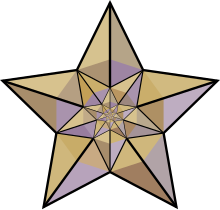Wikipedia:Wikipedia Signpost/Drafts/OtherLanguageWikis
Dispatches: Featured Content at other wikis
The English-language Wikipedia project is the largest Mediawiki encyclopedia, but there are ten other languages with more than 300,000 articles (compared to the English project's 2.7 million and counting.) The largest Wikis are: Deutsch, Español, Français, Italiano, Nederlands, 日本語 , Polski, Português, and Русский (German, Spanish, French, Italian, Dutch, Japanese, Polish, Portuguese, and Russian, respectively.) The wikis vary not only in size, but also the mechanisms by which they recognized and feature content such as lists, articles, pictures, or portals. Below is a comparison of the featured processes and main pages of the larger wikis.
Featured articles

Each wiki has some sort of featured content. On the Spanish Wikipedia, "Artículos destacados" are judged against a criteria very similar to the English Wikipedia's featured criteria—in contrast, the German Wikipedia's Kandidaten für exzellente Artikel have only vaguely defined criteria; nominators are required to proof for Accuracy, Completeness, Style and Spelling before nomination. The Dutch wiki's criteria are similar to the English language project, but require at least one image related to the subject (while on the English Wikipedia it is merely recommended.) While size limits have been debated at the Featured Article Candidates talk page occasionally, the Russian criteria explicitly state that articles can be no less than 15KB to be featureable.
While FACs are closed by an FAC director on the English Wikipedia after consensus has been reached or failed to be reached, the equivalent for several Wikis, including the Spanish and French language projects (Candidatos a artículos destacados and Articles de qualité, respectively), is considered a vote. Each language has certain thresholds for passing a featured article; for example, the Portuguese process (Escolha do artigo em destaque) requires at least seven votes and a 75% support margin. The FA processes are overseen differently; some wikis, such as the English and French projects, use specially-selected delegates who handle all candidates; the Spanish project has five elected admins who monitor the candidates; and the Russian project has administrators follow specific candidates and archive nominations every three days. Whereas the English Wikipedia candidates are archived as soon as consensus is reached, other wikis have time limits: Portugese candidacies run for no more or less than one month, and a German KEA nomination lasts twenty days.
Those wikis with a FAC-type process usually have mechanisms for demotion of such content. For the Spanish wiki, the same suffrage rules apply to the candidates and reevaluation pages; likewise the same five admins who close or promote candidates oversee the removal process. On the French wiki, removal candidates essentially go through another AdQ, with a certain threshold of participants required to say it meets criteria; if an AdQ is contested within a year of promotion, it requires only a simple majority to overturn its status. The Portuguese wiki had an FAR-type process in 2007, but the page is now marked historical. There is currently discussion about reviving the process, but it has met opposition.
Good articles and other featured content
On Wikipedia, Good articles highlight content that has been selected by a single reviewer to meet basic standards in regards to prose, sources, and images. Many languages do not have good articles or an equivalent, and those that do often run it differently than the English Wikipedia. The French project ties their version of GA (bon article or BA) with the selection of AdQs. If an article does not meet tally thresholds to become an AdQ, but meets the tallies for a BA, it is moved to a second month-long round of deliberation for listing.
Other featured content are more common. Like BA, the French equivalent of Featured portals are promoted via the centralized AdQ page. Featured list and portal candidates are grouped together on the German wiki, but on a different page from articles. The Portuguese process, Anexos destacados (featured appendixes), is handled differently because on that project lists have their own namespace separate from articles. Featured pictures are occasionally handled on each wiki as they are on Wikimedia Commons (like the Dutch project) or are subject to language-specific rules (the German equivalent has criteria for composition and encyclopedic worth, and requires at least five supports with twice the number of supports as opposes in order to pass.)
The main page
The English Wikipedia's Main Page features portals to broad article topics as well as a selected featured article ("today's featured article", which changes daily), a collection of hooks from new articles ("did you know"), historical facts from previous years in history ("On this day...") and a news feature ("In the news"). Other content includes a featured picture with caption and links to the larger language projects.
Most of these large wikis have similar content, with some variation. The Spanish Wikipedia runs a Featured article (Artículo destacado), Good article (Artículo bueno), Picture of the Day (Imagen del día), Phrase of the day (Frase del día), Did you know (¿Sabías que...), In the News (Actualidad), On this day (Efemérides) and Portals. (It should be noted that unlike the English Wikipedia, the Artículo destacado does not change daily; the Portuguese have a similar system.) The French project runs a Did you know (Le saviez-vous ? ), Picture of the day (Image du jour), On this day (Actualités et événements), and a single Spotlighted article (Lumière sur…) that may be an AdQ or BA. The Dutch and German projects feature a Recently Deceased area (Kürzlich Verstorbene and Recente sterfgevallen, respectively), and the German main page also contains a Wikipedia update (Wikipedia aktuell). A unique feature of the Russian main page is a showcase for a collaboration of the week (Совместная работа недел).
